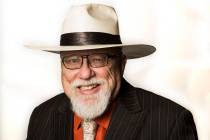Is anyone watching the pharmacy industry?
The more you follow the recent news about the growing national outbreak of meningitis, which is linked to tainted spinal injections developed by a compounding pharmacy out of Massachusetts, the more disgusted you become.
And the more you look into whether compounding pharmacies are well-regulated in Nevada, the more worried you become.
Compounding pharmacies are supposed to provide special need products for individuals but often appear to work now as unregulated drug manufacturers.
That lobbyists for the compounding pharmacy industry fought off major FDA oversight for years proves once again that profits are often more important than safety in health care.
Just last year in Nevada nine people became seriously ill with sepsis, a sometimes fatal bacterial blood infection, after a pharmacist at Pathway Specialty Compounds in Las Vegas prepared a tainted compound used to treat calcium deficiencies.
California state records show that Pathway pharmacist Kenton Lance Crowley had lost his license to practice in that state in 2008 because he was a threat to public safety, yet was given a license in Nevada.
"Nobody looks very closely at what compounding pharmacies do in Las Vegas," said a valley physician who did not want his name used for fear of retaliation from the Nevada State Board of Pharmacy.
What has happened, he observed, is that the pharmacy industry, federal agencies and state regulators all share responsibility for monitoring compounding pharmacies. But without any entity having full responsibility, oversight is lax.
At this writing, there were 15 dead and 14,000 people nationwide who have been exposed to tainted steroids from the New England Compounding Center in Framingham, Mass.
As incredible as it may seem, federal inspectors at the center found a sealed vial of the steroid afloat with so much foreign fungal matter that it could be seen with the naked eye.
Dumb luck appears to be what saved five Nevadans from, at worst, early graves, or at best, many sleepless nights as they waited to see if they became ill from what the New England Compounding Center served up.
Why officials from the Sahara Surgery Center, which is part of Sunrise Health and was the only Nevada company to order the drug from the compounding company, didn't use the five vials of methylprednisolone acetate that had been ordered in July has not been disclosed.
The vials were confiscated by federal officials.
Nor were details provided why Sahara officials worked with a company with a history of safety problems.
Stacy Acquista, a Sahara Surgery Center spokeswoman, would not answer questions but did email a statement that said the medication and "all NECC products" had been removed from the center's shelves.
"There's only one reason that it was ordered from this small company and not from a big manufacturer like Pfizer: cost. It's all about the money and profit," the doctor said. "We need compounding pharmacies to do what they're supposed to do - create custom medications for people who need them. But this company was acting as a manufacturer without FDA oversight."
And FDA officials dispute claims by some companies that they ordered the drug from the compounding center because of a shortage.
Carolyn Cramer, general counsel for the Nevada State Board of Pharmacy, said she can neither confirm nor deny that Sahara Surgery Center officials are under investigation.
State records show that the investigation of Pathway Specialty Compounds resulted in a three-year probation for the compounding pharmacy and the loss of pharmacist Crowley's license.
The records don't show why Crowley was given a license in Nevada after spending prison and jail time in California.
California state records show he dispensed the wrong medication and had a history of convictions for DUIs and drug abuse. He and his family pharmacy had 25 separate violations of the pharmacy act, including acting as a manufacturer without the proper FDA license.
"I can assure you we are very tough on compounding pharmacies ... they're inspected every year," Cramer said last week, offering to fax inspection forms. "We stay on top of them."
Cramer was good to her word. She faxed 20 pages, but she also wrote a note on the comments page that makes you wonder how closely the pharmacy board monitors compounding pharmacies:
"Paul - We don't have a count of the number of compounding pharmacies in Nevada. But we estimate it is less than 20."
Paul Harasim is the medical reporter for the Las Vegas Review-Journal. His column appears Mondays. Harasim can be reached at pharasim@reviewjournal.com or 702-387-2908.

















